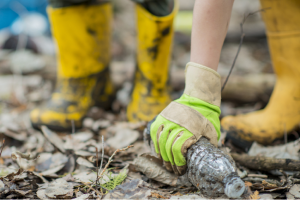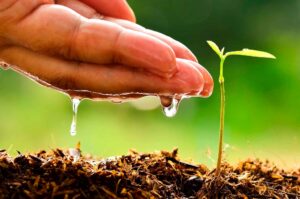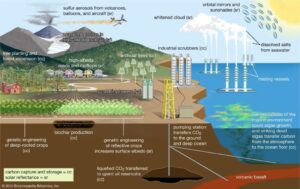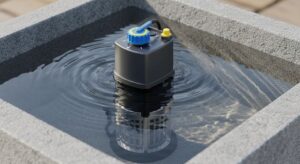9 Tips to reduce plastic at home I Infographic

Reduce plastic seems like an impossible task. Since we find it practically everywhere: food is sold in plastic containers, as well as hygiene products. Your car, your mobile, your computer, and all the objects around you are made of plastic or contain it.
Why it is essential to reduce plastic

Plastic has a useful life of about 12 to 15 minutes since half of the plastic we use is single-use (such as plastic bottles or straws). Despite their short life, they take hundreds of years to decompose.
It is true that a large part of the plastics that are sold are recyclable, but they are actually downcycled. That is, a plastic item can only be recycled into a lower-quality product, not the same.
In addition, despite the possibility of recycling plastic, the truth is that this waste, mostly made from oil, ends up in landfills, beaches, rivers, and oceans creating a major environmental problem that affects both fauna and flora. Statistics published by Science Magazine showed that as of 2015, 6.3 billion tons of plastic waste had been generated. Only 9% of this amount was recovered for recycling and 12% was incinerated.
What can we do to reduce plastic?
It is very difficult to avoid plastic in your daily life, but it IS possible to reduce its consumption through small actions, using sustainable and environmentally friendly products. Furthermore, we as consumers have the power to get manufacturers to take action when creating their products. In this way, each one of us contributes to helping recover a pollution-free planet.
Tips to reduce plastic consumption
Avoid Buying Water In Single-Use Plastic Bottles
Water bottles are, without a doubt, one of the main waste problems worldwide, because not all of them are 100% recyclable and because of the quantities that are consumed. 2016 statistics from Euromonitor show that 480 billion bottles of water were sold in 2016. It is estimated that less than 50% is collected for recycling and of this only 7% is converted into new bottles.
So, at home it would be advisable to drink filtered tap water and go, instead of buying small plastic bottles, you can have a reusable bottle like the Nalgene with you.
They are resistant, durable, and recyclable bottles that also do not contain toxic substances such as BPA. In addition, if each of us used a Nalgene for a year in our activities, we would prevent up to 167 plastic bottles per person from littering our planet.
Use Eco-friendly Products To Reduce The Consumption Of Plastic
An eco-friendly product is one that has been created respecting the environment, with the aim of benefiting the planet and facilitating its recycling. An example would be wooden toothbrushes. In this article, you will find 7 eco-friendly products that will help you reduce plastic.
Don’t Use Plastic Drinking Straws
plastic straws are totally expendable. However, we use a lot of straws for nothing, when we can simply drink from a glass. In addition, they represent a danger to marine animals. If you have small children who find it difficult to drink water from a glass, you can try a child’s bottle. In addition to being reusable, they are fun and designed for the little ones.
Avoid Chewing Gum
Did you know that most of today’s chewing gum contains plastic in its composition? Today there is a way to recycle this product, but not all recycling plants do it. In addition, it is a residue that easily ends up on the ground. It is better to avoid chewing gum to avoid jaw pain and for the health of your teeth, but you can always opt for organic gum.
Do Your Shopping With Reusable Or Cloth Bags
In shops, it is no longer allowed to give plastic bags for free. You can go a step further by going shopping with cloth bags, vegetable materials, or even with a cart. Sometimes you can’t avoid plastic in wrappers and packages, but at least you’ll be helping just by changing one bag for another.
In addition, the car is a more efficient and appropriate method of transportation. Your back will thank you!
Buy Products Packaged In Cardboard Or Glass
We can buy broths, creams, or even milk, in glass bottles instead of tetra brik. (Just like in the old days!) These materials are easier to recycle, plus you’ll be preventing BPA or other harmful substances in the plastic from getting into your food.
If they are not recycled, they break down more quickly and are less harmful to the environment. So whenever you can, say no to plastic packaging.
If these products are difficult to find in a normal supermarket or are much more expensive, at least try to choose those that use less plastic. An example would be pastries with only one wrapper and not two (the package and the individual wrapper) and fruit that comes in cardboard boxes and not in plastic trays.
Forget Packages! Buy In Bulk
You can also choose to buy in bulk at specialty stores and supermarkets. Coffee, cereals, legumes, sugar. There is a long list of products that can be purchased in bulk with no problem. You only need glass jars or Nalgene kitchen jars to store food. Making a purchase without waste is possible!
Avoid Coffee Pods
Recyclable coffee pods already exist today, but they are still a source of waste that can be easily reduced: use the classic Italian coffee maker. If several members of the coffee family live together at home. In the end, it is more profitable to use a large Italian coffee maker or even buy a coffee grinder.
Look For Alternative Cleaning Products
Don’t need several plastic bottles to clean floors, bathrooms, or windows. You can use cheap, natural products like baking soda or vinegar as substitutes.
You may like to read Actions to take care of the environment at home








